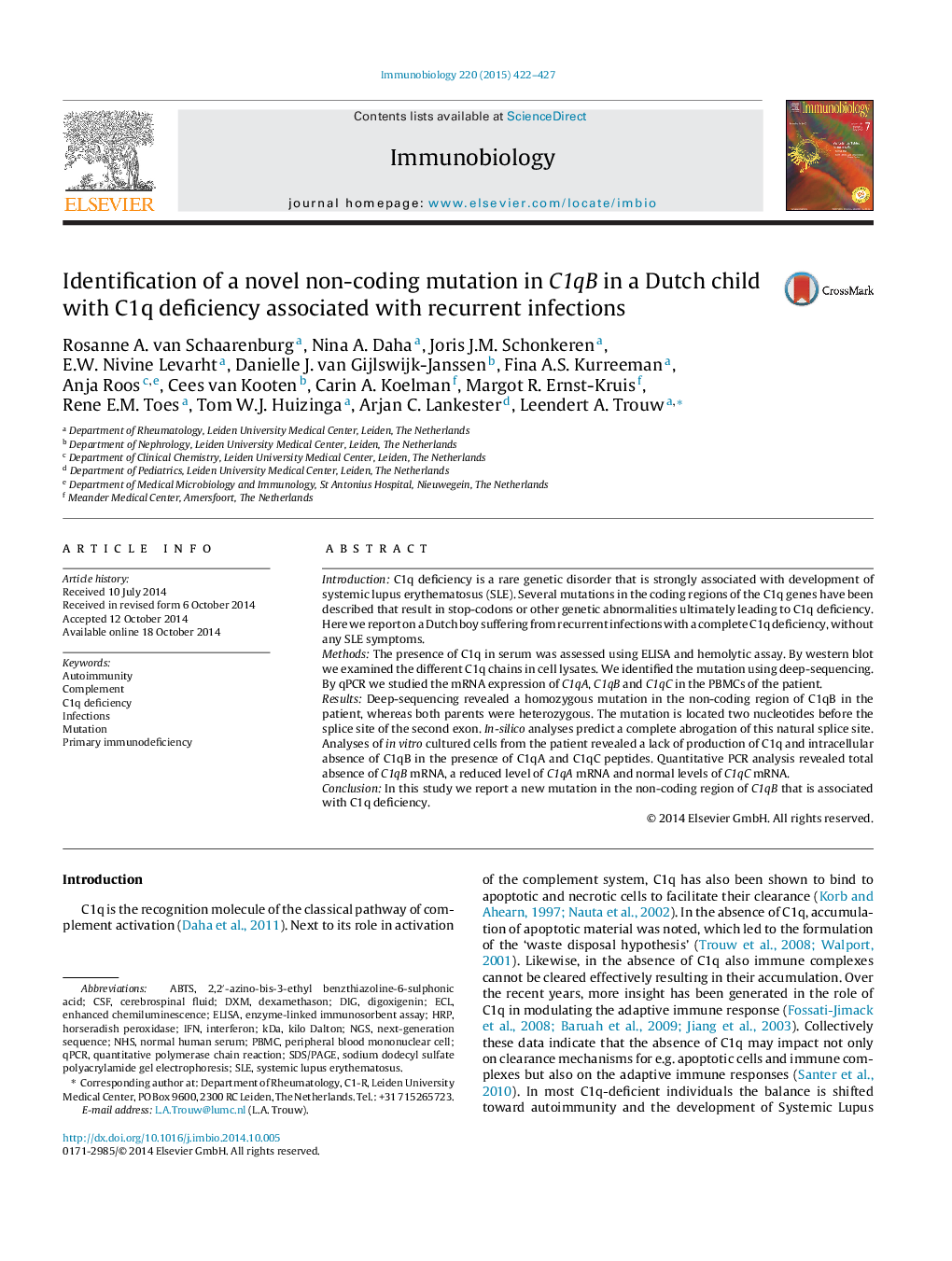| Article ID | Journal | Published Year | Pages | File Type |
|---|---|---|---|---|
| 2182867 | Immunobiology | 2015 | 6 Pages |
IntroductionC1q deficiency is a rare genetic disorder that is strongly associated with development of systemic lupus erythematosus (SLE). Several mutations in the coding regions of the C1q genes have been described that result in stop-codons or other genetic abnormalities ultimately leading to C1q deficiency. Here we report on a Dutch boy suffering from recurrent infections with a complete C1q deficiency, without any SLE symptoms.MethodsThe presence of C1q in serum was assessed using ELISA and hemolytic assay. By western blot we examined the different C1q chains in cell lysates. We identified the mutation using deep-sequencing. By qPCR we studied the mRNA expression of C1qA, C1qB and C1qC in the PBMCs of the patient.ResultsDeep-sequencing revealed a homozygous mutation in the non-coding region of C1qB in the patient, whereas both parents were heterozygous. The mutation is located two nucleotides before the splice site of the second exon. In-silico analyses predict a complete abrogation of this natural splice site. Analyses of in vitro cultured cells from the patient revealed a lack of production of C1q and intracellular absence of C1qB in the presence of C1qA and C1qC peptides. Quantitative PCR analysis revealed total absence of C1qB mRNA, a reduced level of C1qA mRNA and normal levels of C1qC mRNA.ConclusionIn this study we report a new mutation in the non-coding region of C1qB that is associated with C1q deficiency.
